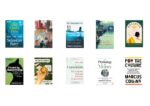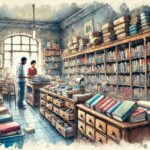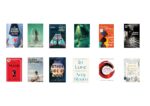Books are the key to a better life
Why don’t Kenyans read books? That is the lament of many a writer, publisher and intellectual.
We don’t have that many bookshops in this country – and most of the successful ones are forced to sell a whole range of other items, from CDs to greeting cards. Equally, it’s rare to find a writer who makes a good living just from writing, and you won’t see many publishers in Kenya’s rich list. Writing, publishing and selling books in Kenya is mostly just a labour of love.
This is not the case everywhere. Billions of books are sold every year across the world, and books are a multi-billion-dollar industry. Meanwhile, Americans are lamenting that one in four of them did not read any books at all last year. Those who did read, however, read an average of seven books. I’m not sure I’d want to see the figures for Kenya.
So what’s stopping Kenyans? The obvious reason may be poverty: books seem to cost anything from 500 bob to a few thousand. A single book may therefore constitute a large part of the average Kenyan’s disposable income. Not forgetting that if there are books that parents need to invest in, those are textbooks.
It is certainly true that books need to be made more affordable in Kenya. But hey, why do we need to always buy books? What happened to public libraries, school libraries and even the plain old-fashioned pool of books that friends share? I didn’t grow up with too much disposable income myself, but that was the way I managed to read – by borrowing, by coercing, by exchanging and by saving.
I skulked around the McMillan library, and around the few second-hand bookshops in Nairobi. I also had the benefit of having a father who told me never to consider a book – any book – as a cost: always as an investment. I took that advice to heart: even during the lowest-income moments of my life, I have never stopped buying books. I know they’ll pay me back.
There is clearly a public policy issue here: do we, as a country, give enough attention to books? Clearly not. Pay a visit to a public library (if you can find one) and see for yourself. Check if the love of reading is conveyed to children by their teachers and parents. We squander public resources on all the silly things under the sun, but not on the things that might actually improve us as a nation: books.
The truth remains, however, that if we valued books we’d find ways of reading them. If we thought books were the key to a more knowledgeable, more agreeable life we would beg and borrow our way to that treasure. We don’t. We confine our reading to the turgid textbooks that some committee sitting somewhere decides we should all read when young. That experience puts us off for life. After that, we confuse information for knowledge and get it from newspapers, magazines, television and the internet. But not from books.
What a crying shame that is. “What we become depends on what we read after all the professors have finished with us. The greatest university of all is a collection of books”, said Thomas Carlyle. I would have to agree: two degrees have given me nothing in comparison to what I have learned from my collection of books.
Kenyans who complain about not having access to higher education are spurning the greatest treasure trove of knowledge there is. Whatever it is you want to know, someone somewhere has probably written a very good book about it (alongside many bad ones). The only drawback is that an institution won’t give you a certificate after you finish; all you’ll have is your personal satisfaction.
Lastly, a good word for fiction. I have come across people who refuse to read fiction saying that they want facts, not the product of someone’s imagination. Yet those same people have no qualms about watching a ridiculously overblown movie.
Fiction is not made-up nonsense. A writer does not enter a sealed vacuum and erase her memory before sitting down to write a story. Stories are rooted in reality, in experience, in all the things we have absorbed about life. All that a story does is provide you with a different lens with which to look at the world – and see new things, hitherto unobserved. The late and much lamented Primo Levi defined a story thus: “A fable that awakens echoes, and in which each of us can perceive distant reflections of himself and of the human race.”
Think of it this way: a person sits down to put some squiggles on a page. Decades later, thousands of miles away, you read those squiggles. If they are good, you may find yourself feeling extreme emotion: tears of connection with someone else’s heartbreak; raging anger at someone else’s injustice; a moment of breathtaking revelation when you understand something very clearly. All from some squiggles on a page. If that isn’t magical, tell me what is.

Buy Sunny Bindra's new book
The X in CX
here »
Popular Posts
- Make this your year of being boringJanuary 4, 2026
- Can we please stop with the corporate jargon?January 11, 2026
- Snakes and Ladders, AKA your lifeJanuary 25, 2026
- The man who passed by one markJanuary 18, 2026
- My books of the yearDecember 14, 2025















